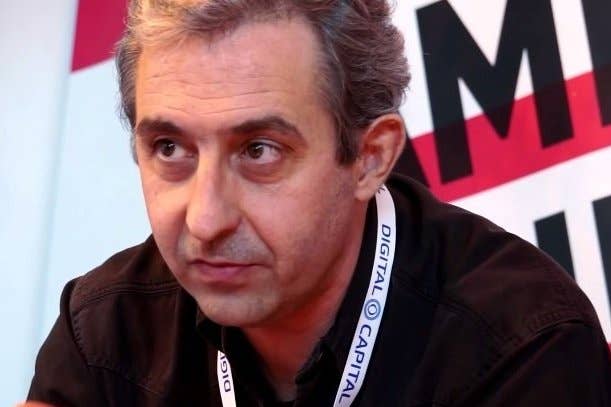It's tougher to develop for kids than core gamers
Assassin's Creed Unity game director Marc Albinet says casual games force devs to better understand their players
This week marks the launch of Assassin's Creed Unity, the first installment in Ubisoft's flagship open-world action franchise designed specifically for the new generation of consoles and PCs. It represents the new norm in AAA development, hundreds of developers working for years putting together a blockbuster with ambitious selling points, like letting players romp through a recreation of French Revolution-era Paris, complete with up to 10,000 computer-controlled characters filling the streets of a living, breathing city.
But for all the challenges of designing a game to fit the demands of the AAA audience, Unity director Marc Albinet said it's not as difficult as working on less-heralded fare for children.
"What the casual experience made me understand is that you need to understand your players. The game you are making is not for you; it's for your players."
"It's harder to make games for casuals than for hardcore gamers," Albinet told GamesIndustry.biz at the Montreal International Game Summit on the eve of the game's release this week. "When you're a developer, you need to understand casual gamers and how they work."
Though Albinet's decades-long career has spanned well-regarded core games like Unreal and the Twinsen's series of PC games, he has spent much of this century focused on casual and kids games like The Smurfs and Winnie the Pooh's Rumbly Tumbly Adventure.
"What the casual experience made me understand is that you need to understand your players," Albinet said. "The game you are making is not for you; it's for your players. So you need to understand your players and then you can make the game for them."
One of the difficulties of making kids games is that the age range of the target audience is a lot narrower in terms of years, but much wider in terms of developmental growth. If you target a game for three-year-olds to eight-year-olds, you're going to have an audience that crosses some pretty important barriers over that span, like being able to read. Albinet may have returned to making core games with Unity, but he kept that same approach he learned from his days making games for the casual crowd.
"It's really the trajectory you need to have as a developer," Albinet said. "For the AAA industry, it's something you need. If you don't have this loop, you'll make the game for you. I'm not saying it won't be good then, but for sure it will be for a smaller audience."
Historically speaking, Albinet said Assassin's Creed has always been a franchise intended to reach a large, mainstream gaming audience. That means the franchise had to be adaptable to gamers with different play styles, or different profiles, as he called them. Whether players want to just see the story, play online co-op missions with friends, or exhaustively complete every side mission and objective in the game, Unity had to offer something for each profile of player, and then provide incentives for them to try out some of the other approaches.
"I think why I came to this project is that the brand needed fresh vision, fresh thoughts...There were several of us who were fresh blood on the brand in order to give fresh ideas and learn from the others, too."
Albinet said in previous Assassin's Creed games, about 40 percent of players reached the end of the game's 15-20 hour narrative, and many stopped playing at that point, while completionists could spend an extra 15 hours or longer seeing and doing everything possible in the game. For Unity, the goal was to keep that same percentage of players finishing the game, but to keep them engaged for a longer stretch of time. Part of that was lengthening the campaign so it takes 25-30 hours to complete, but the developers also integrated the co-op multiplayer mode seamlessly into the world of the campaign, with rewards that could benefit players in the story. Early testing on Unity suggests the strategy might work. Albinet said they found that somewhere between 60 and 70 percent of players at least dabble in cooperative play during the story, and about 30 percent try out the multiplayer aspect once they're finished with the campaign.
There have been six previous major releases in the Assassin's Creed series already (and a wealth of spin-offs, downloadable content, mobile apps, and transmedia efforts), something Albinet said was a double-edged sword as a developer new to the series. After so long a time, there are certain patterns that players have been taught. Those patterns are valuable and help to make the open-world sandbox more approachable for players, Albinet said, but they also provide some boundaries within which the team must find ways to innovate.
As a small example, Albinet pointed to the process of climbing towers to "synchronize" and populate the map with icons for nearby objectives. The developers kept the basic premise intact for Unity, but limited which objectives would appear, encouraging players to explore the city and find other points of interest.
"I think why I came to this project is that the brand needed fresh vision, fresh thoughts," Albinet said. "So I think it was important, and I was not the only guy not having done AC before. There were several of us who were fresh blood on the brand in order to give fresh ideas and learn from the others, too."









